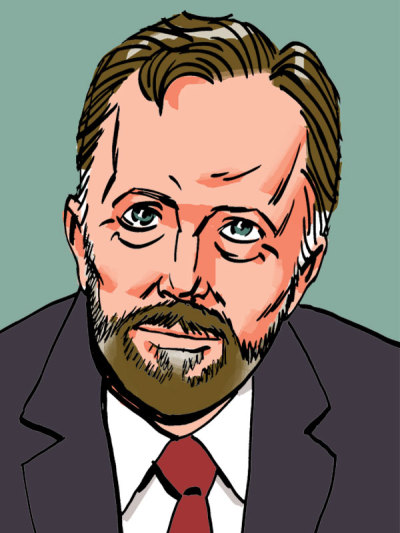Why Higher-Order Thinking Skills Are Transforming Bible Engagement
Wise parents, grandparents and educators nurture "higher-order thinking skills" (HOTS) in children, youth and one another for many good reasons. Most importantly, HOTS vividly celebrates that we humans are not merely creatures of nature; we are not now limited to the sensory world, or the world of time and space. Because of the HOTS potential that the Lord already built into our first ancestors, we can rise above our temptations, reflect on our behavior, navigate dilemmas, develop character, and even become Godly people by grace.

We people are embodied spirits. We have marvelous minds – not just phenomenal brains. Defenders of "back to basics" or "traditional" education – merely based upon teacher-centered rote learning and memorization – minimize the liberating powers of the Word, and of words. None of us is the mere products natural processes. We are (a) the images of God, (b) male and female, and (c) the Lord's appointed stewards for all creatures on earth – all taught in the first definition of humanity in Genesis 1:26-28. Of course, rote learning of the "3 R's" – reading, writing, and 'rithmetic – are useful tools for the deeper education of responsible HOTS. Both the 3 R's and HOTS enhance our capacities to "glorify God and to enjoy him forever," to borrow a great phrase from the Westminster Catechism.
As far as I know, HOTS did not get its name from its proven uplifting capacity to enhance our glorifying God or our enjoying Him now and forever. Instead, both secular and religious thinkers have seen that reflecting on the past, questioning, understanding, remembering, analyzing, synthesizing, evaluating, creating and committing are all in some sense "above" rote thinking.
Nevertheless, the most influential Christian thinkers have understood that our HOTS capacities are vivid reminders that we humans are much more than complex protoplasm. We are all bodies and spirits, originating with a special relationship with the empowering Holy Spirit. We are especially shaped clay with the very breath of God. We are God's image, male and female. Even when we offend God in sin, that special divine signature is never erased. From our very origins, our human nature bridges the natural and the supernatural, the body and spirit. The body needs rote teaching, but the spirit is empowered through HOTS. All the "Christian liberal arts" matter for Godliness in the home, church, college, K-12, and preschool – especially if they are vibrantly shaped through Bible engagement.
The spirit aspect is a matter of both Scripture and experience. For example, in his Confessions, Books I-IX, Augustine shares his profound autobiography of his first 33 years – persistently running from God and yet perpetually encountering his Presence. Then in Book X, Augustine reflects on the extraordinary power of memory to liberate us from the confines of ordinary space and time to recollect decades of life on mere dozens of pages. Even detailed recollections of complex and extended periods of time can be brought to mind in a flash, he observes. In a way of speaking, there are frequent elements of human experience that is beyond time – timeless. This is vivid evidence that we are not merely creatures of physical nature, but share aspects of God's own nature, Augustine says. I agree.
Similarly, looking forward, when we hear someone say, "Our Father," people familiar with Scripture think the whole Lord's Prayer in a tiny fraction of a second, even if it takes 25 seconds to say the famous prayer. Also, if someone says, "For God so loved," immediately followers of Jesus think the rest of the verse, although it would take 10 seconds to speak it.
Clearly, the spirit aspect of us humans is not limited by time and space. We should therefore joyfully engage in and support HOTS education that helps lift people above rote processes, to engage their spirits in the fun of serious exploration, discovery, creativity, understanding, challenge, and commitment. This is especially fitting when it comes to Bible engagement – at home, church, ministries, or wherever. In the "7 WordWonders" [www.7WordWonders.com] Bible curriculum, for example, the 4th, 5th, 6th, and 7th WordWonders all engage HOTS, but in vastly different ways.
In the Christian community, people need to talk about this. It should never be enough to tell a good story; creatively retelling or crafting a good plot matters even more. Doing simple arithmetic problems is good; applying that skill to solving life-based "story problems" is better. Hearing well performed music is nice; appreciating progressions and variations on themes while we fully enjoy listening is even nicer. Solving a puzzle is worthy; developing puzzle solving skills that help a person master astute thinking is even more precious.
In watching "A.D. The Bible Continues" now on Sunday evenings on NBC, April 5-June 21, we can witness creative engagements with vibrant Bible texts that we can also read and creatively engage ourselves. The Godly youthful bravado of Stephen is subtly evident in Luke's reporting of Stephen's ministry, testimony, and martyrdom in chapters 6 and 7 Acts. In the 5th episode of A.D. we see that Godly youthful bravado dramatically, powerfully acted out.
Highly skilled A.D. producers Roma Downey and Mark Burnett exemplify HOTS, and can inspire others to valuable creative engagement with the Best Book, too. The mere rote study in many churches and homes needs to be liberated from boredom, and raised a notch to creative HOTS. How would you dramatize Stephen's ministry, testimony, and martyrdom in reader's theater mode, or in full-fledged, spontaneous role-playing? Reader's theater and role-playing are just two creative options in WordWonder #6.
Creative Bible engagement is fun, revealing, memorable, and life-changing. It brings text-to-self much more deeply and powerfully than mere reading and comprehension alone. That is why HOTS are hot.




























